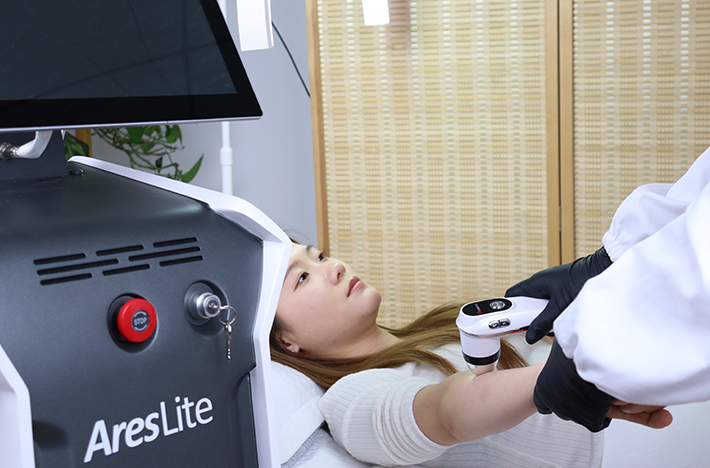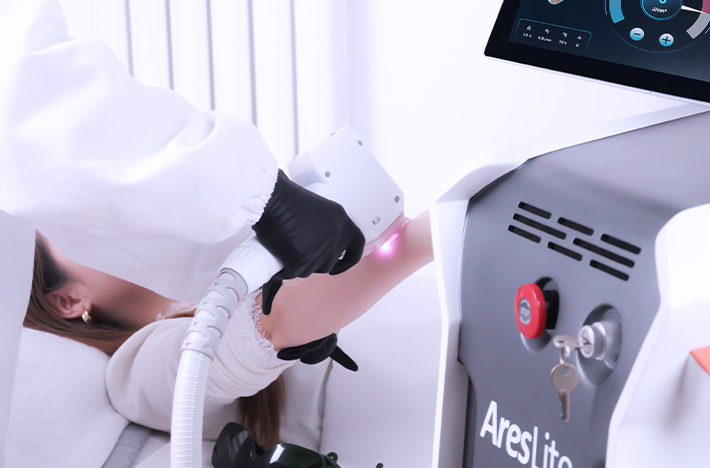Issues in Purchasing and Understanding Commercial Diode Laser Hair Removal Systems
Common Diode Wavelengths in Laser Hair Removal
Diode-based hair removal systems primarily use wavelengths such as 808nm, 810nm, 940nm, 755nm, and 1064nm. The 808nm/810nm range is ideal for balancing melanin absorption and skin penetration, and is suitable for most skin types. Lower wavelengths (e.g., 755nm) target finer hairs, while higher wavelengths (e.g., 1064nm) are suitable for darker skin tones. The innovative 940nm wavelength is used for skin redness removal and enhanced skin rejuvenation.
Pain Management in Diode Laser Treatments
Advanced non-crystal-based hair removal devices use dynamic cooling technology (e.g., sapphire tip cooling, compressor cooling, cryogen spray) to minimize discomfort, and modern iterations are significantly less painful than older methods such as IPL.
Leading countries for quality laser hair removal equipment
High-performance laser hair removal devices are produced in the United States (e.g. Candela), Germany (e.g. Deka), Israel (e.g. Alma Lasers), and China (e.g. Winkonlaser). Chinese suppliers have achieved outstanding results in balancing cost and innovation.
Top beauty machine manufacturers in China
Winkonlaser is the leading diode hair removal machine producer in China, providing FDA/CE certified devices with customizable parameters. Their focus on R&D and global compliance ensures competitive reliability.
Smart features in hair removal systems
Popular hair removal devices integrate AI skin sensors, adjustable pulse duration, contact cooling, and real-time feedback mechanisms. These innovations improve safety, efficiency, and user experience for different customer groups.
Becoming a distributor
Potential agents should give priority to suppliers that provide comprehensive training, technical support, and marketing resources. Well-known manufacturers like Winkonlaser offer regional exclusivity and flexible partnership models.
Customization process
OEM/ODM services allow clinics to customize laser beauty devices with branded interfaces, adjustable energy settings, or dedicated handles. Custom orders typically involve prototyping, testing, and mass production stages.
Basic Certifications for Laser Hair Removal Devices
Certified hair removal devices must comply with FDA, CE, or ISO 13485 standards. Additional safety features such as skin color sensors and emergency shut-off mechanisms are essential for operational compliance.
Cost Considerations
Commercial-grade diode laser systems range from $3,000 to $20,000, depending on the technology tier, brand reputation, and additional features. Advanced models from Chinese suppliers typically cost 30-50% less than their Western counterparts.
Advantages of Chinese Suppliers
Chinese manufacturers excel in cost-effectiveness, rapid customization, and adoption of cutting-edge technology, such as quad-wavelength systems. Brands like Winkonlaser match global competitors in performance while maintaining affordable prices.
Summary of Key Considerations
Technical Specifications: Prioritize innovative diodes, wavelength versatility, and device cooling mechanisms.
Compliance: Verify certifications such as FDA/CE.
Supplier Reputation: Choose manufacturers with proven R&D investments.
Total cost: Consider maintenance, training, and consumables.
Customization: Ensure scalability to meet clinic-specific needs.
By addressing these common questions, buyers can be confident that they will find an effective laser hair removal solution that meets clinical needs and budget constraints. The growing market, especially in China, offers a strong selection of options that combine innovation and affordability.








Leave a Reply
You must be logged in to post a comment.